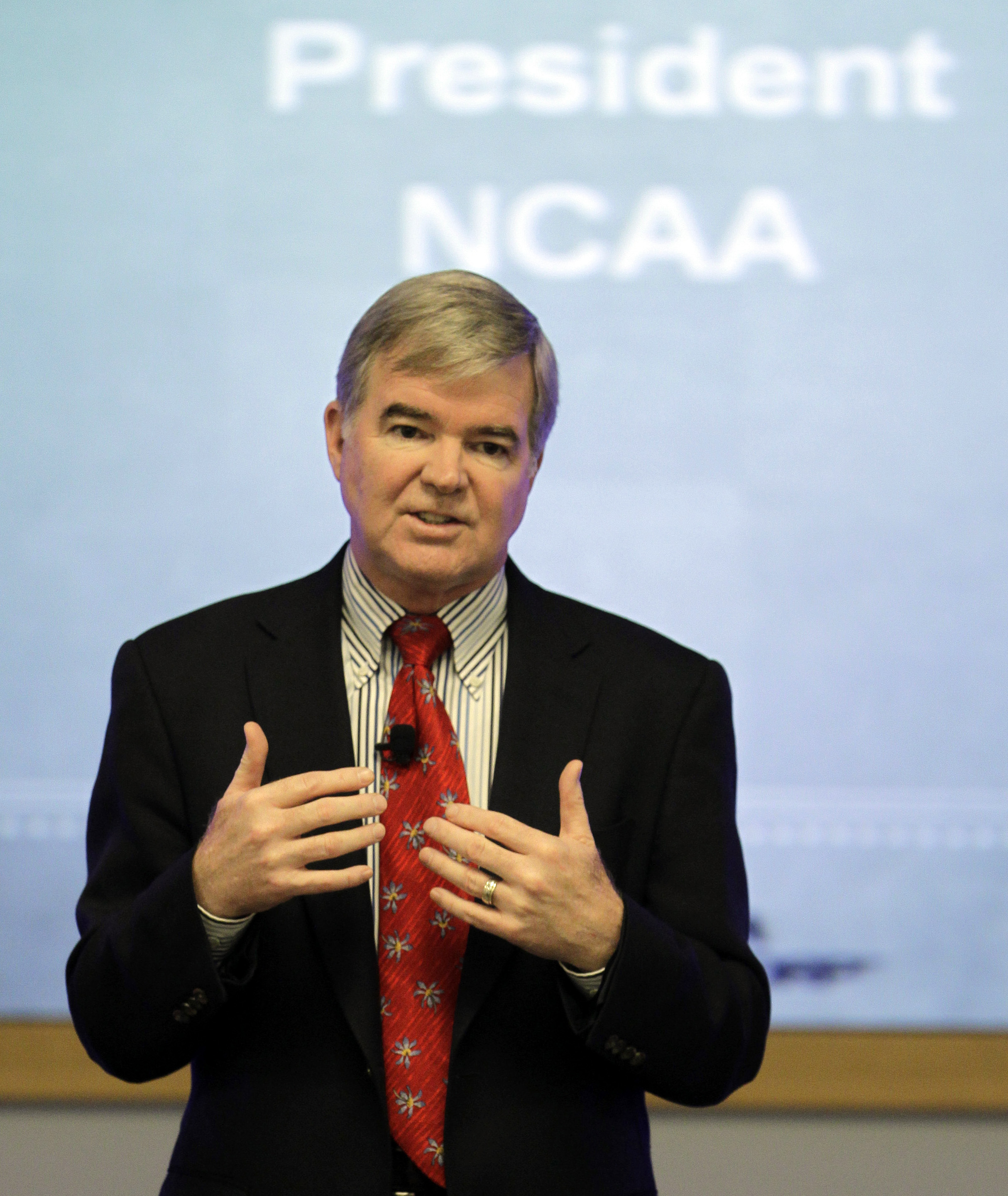We're going to begin today's column by asking you to pretend you're a full-time college student for Big State U.
You also have a pretty demanding part-time job working for your school as you advance toward your degree in a timely manner. During 24 weeks of the year you're asked to work 30 hours a week. During the remaining 28 weeks you work about 12 hours a week.
Though I failed calculus, I'm pretty sure that equates to 1,056 hours of employment each year.
But that's just half the story. Because you're an out-of-state student, your tuition, room and board is $20,000 a year. However, your work covers all of that, which means when you graduate you'll owe absolutely nothing for your degree.
And your hourly wage for this contract? A few pennies over $18 an hour. Not bad for someone without a college diploma.
Yet to hear NCAA president Mark Emmert and a student advocacy group called the National College Players Association tell it, that's not enough for our major college football and men's basketball players.
To hear Emmert and this unofficial collegiate players union spin it, the athletes need at least $2,000 more a year to cover the "full cost of attendance," though no one is yet sure if "full cost" includes four pairs of LeBron James sneakers -- the new LEBRON 9 retails for $206 a pair -- at least two new tattoos a semester and the latest X-Box offering.
"I think it's ridiculous. It sends a terrible message," said University of Tennessee at Chattanooga football coach Russ Huesman, who knows there's no way UTC could pay its athletes $2 a year, much less $2,000.
"Look at all the extras these guys get now -- extra food, extra clothes, travel benefits, tutoring. Any college athlete who says he's coming out of college in debt is nuts."
And Huesman didn't even mention all the free publicity they've received that will surely benefit them when they have to land a job in the real world.
"Everybody would like more money," UTC basketball coach John Shulman said, "but who gets it? And where does the money come from? If every school can't do it, then no school should be able to do it. But if you're going to give these kids an extra $2,000, you better teach them what to do with it, because $2,000 will last 15 minutes with a lot of them. That $2,000 needs to come with a money manager."
The argument is that these athletes generate millions for their institutions, so they should get some financial considerations in return beyond a degree.
But even if they do, the folks flipping burgers at McDonald's are helping the Golden Arches make billions a year and almost none of them are making $18.
Beyond that, my formula paid them for 30 hours a week, though they're supposed to work only 20. Here again, however, how many folks do you know who work only 40 hours a week regardless of how many hours they're paid to work? The reality is -- whether completely fair or not -- if you want to be the best, you work what's needed to accomplish that goal.
There's also a perception issue here that Emmert might do well to consider.
"We're very sensitive on our campus to the fact that the faculty have gone three years without a salary adjustment," LSU chancellor Michael Martin said. "And then to say that every student-athlete gets $2,000 at the same time that we may have to go another year without [a raise] only builds up that tension between faculty leadership and the administration and athletics."
Naturally, at least a few athletes see it differently.
UTC's Wes Dothard -- the Southern Conference's defensive player of the week who once received recruiting letters from Alabama, Georgia Tech and Clemson -- said an extra $2,000 a year to play for a FBS program like Bama might have been more appealing than a FCS program such as UTC.
"We'd all like to make more money," Dothard said. "I would have had to consider it."
But the SoCon's third-time freshman of the week -- Mocs quarterback Terrell Robinson from South Pittsburg -- said, "That wouldn't have influenced me. I wanted to be a hometown guy. I wanted to make something special happen here."
Countered UTC senior point guard Keegan Bell, who transferred from Vanderbilt: "Two thousand dollars can sound like $1 million to a college kid. And to a high school kid, it can seem like $2 million. It wouldn't have made a difference to me, but it might a lot of kids."
It apparently would make a big difference to Georgia Tech defensive lineman Denzel McCoy, who's joined the advocacy group.
Said McCoy: "Yeah, we're going to school for free, but when I'm 40 years old, I've got a good degree and everything, but if I can't walk up a flight of stairs, what did I get out of it besides a few bowl games, some rings, things like that?"
What did you get? You got a good degree for free, pal.
Or as Huesman said, "These [players] ought to try working their way through college as a bartender or a waitress, forced to take out student loans and stuff. These players have it easy."
And just to be clear, Huesman played college football before he coached it.

